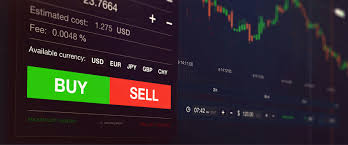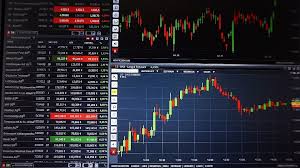
The realm of forex trading online exbroker-turkiye.com has rapidly evolved into one of the most compelling markets for traders around the world. With its immense liquidity, 24/5 operation, and potential for high returns, it attracts both novices and seasoned professionals alike. Understanding the ins and outs of this dynamic landscape is crucial to harnessing the potential it offers. In this guide, we will explore the essential aspects of forex trading, from the fundamentals to advanced strategies and risk management techniques.
Understanding Forex Trading
Forex, or foreign exchange, is the market for trading currencies. It operates as a decentralized market where currency pairs are bought and sold. The market structure is neither centralized nor stationary, contributing to its high liquidity and continuous trading flow.
Every currency pair consists of a base currency and a quote currency, where the value of the base currency is quoted in relation to the quote currency. For example, in the currency pair EUR/USD, the Euro is the base currency, and the US Dollar is the quote currency. If the EUR/USD exchange rate is 1.20, it means that 1 Euro is worth 1.20 US Dollars.
The Importance of Learning Forex Trading
For traders looking to profit from currency movements, gaining a solid understanding of forex trading is essential. Many factors influence currency values, including economic indicators, political events, and market sentiment. Successful trading requires an analytical approach, considering both technical and fundamental analysis.
Technical analysis involves assessing historical price movements to forecast future trends. Traders utilize various tools and indicators, such as moving averages, Bollinger Bands, and the Relative Strength Index (RSI), to identify potential entry and exit points. On the other hand, fundamental analysis examines economic data, news releases, and geopolitical events to gauge potential impacts on currency values.

Choosing a Forex Broker
Selecting the right broker is crucial for a successful trading experience. A reputable forex broker provides a secure trading platform, competitive spreads, and robust trading tools. When evaluating brokers, consider the following factors:
- Regulation: Ensure that the broker is regulated by a recognized authority, which adds an extra layer of security for your funds.
- Trading Platform: Consider the usability and features of the trading platform. A good platform should have charting tools, customizable layouts, and ease of order execution.
- Customer Support: Reliable customer support is essential for resolving any issues that may arise while trading.
- Spreads and Commissions: Pay attention to the spreads and commissions charged by the broker, as they can impact your profitability.
Developing a Trading Strategy
Creating a trading strategy is a crucial step towards becoming a successful trader. There are several approaches to developing a strategy that suits your trading style, including day trading, swing trading, and scalping. Each approach has its advantages and drawbacks, depending on your availability, risk tolerance, and market analysis skills.
For instance, day trading involves making multiple trades within a single day, focusing on short-term price movements. This requires constant monitoring of the market and quick decision-making. On the other hand, swing trading involves holding positions for several days or weeks, allowing traders to capitalize on intermediate price swings based on technical and fundamental analysis.
Risk Management in Forex Trading

Risk management is a vital aspect of forex trading that cannot be overlooked. Effective risk management helps protect your trading capital and minimizes potential losses. Here are key strategies to manage risk effectively:
- Setting Stop Loss Orders: A stop-loss order automatically closes your position when the price reaches a certain level, preventing further losses.
- Position Sizing: Determine the appropriate position size based on your account size and risk tolerance. Generally, risking no more than 1-2% of your capital on a single trade is advisable.
- Diversification: Avoid putting all your capital into one trade. Diversifying your trades across different currency pairs can reduce risk.
The Role of Emotions in Trading
Trading often brings intense emotions like fear, greed, and anxiety. Acknowledging these emotions and keeping them in check is crucial for maintaining discipline in your trading approach. One way to manage emotions is to stick to your trading plan and avoid making impulsive decisions based on market fluctuations. Keeping a trading journal can also help track your trades, emotions, and performance, allowing you to learn from your experiences.
Staying Informed and Continuous Learning
The forex market is constantly changing, influenced by a multitude of factors. Staying informed about global economic events, political developments, and market trends is vital for making informed trading decisions. Engaging with forex communities, attending webinars, and reading books on trading can help you expand your knowledge base and adapt your strategies to market changes.
Conclusion
Forex trading online can be a rewarding endeavor, but it requires dedication, knowledge, and skills. By understanding the basics, developing a solid trading strategy, managing risks effectively, and maintaining emotional control, you can increase your chances of success in this dynamic market. Remember that continuous learning and adaptation to market conditions are key components of sustained profitability in forex trading. Whether you are a novice or seasoned trader, take time to research, practice, and refine your approach to become a successful forex trader.



